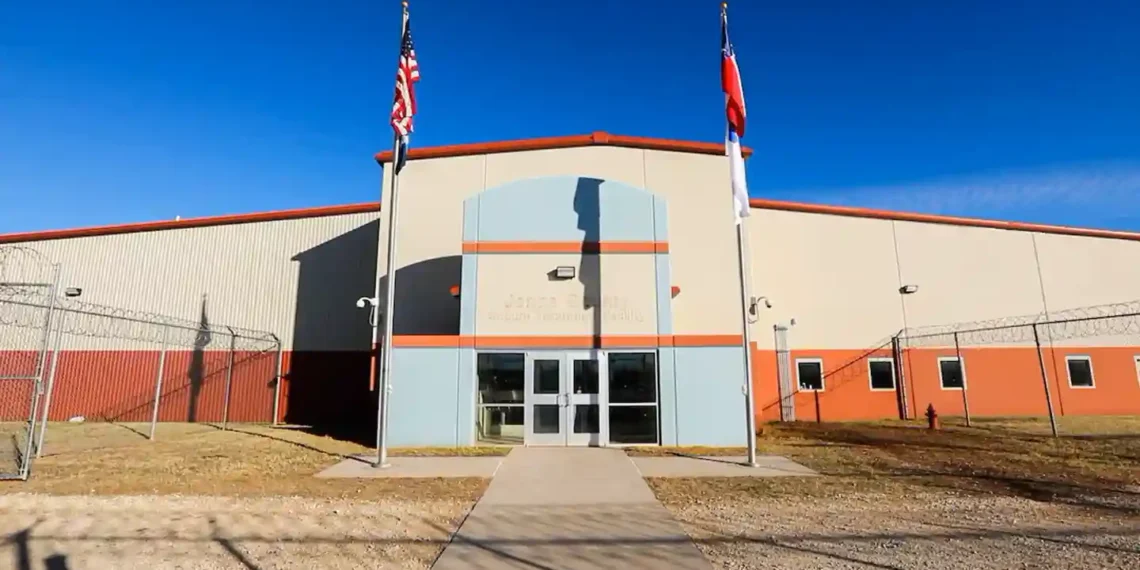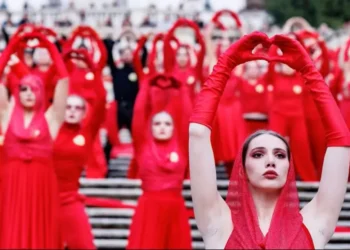US Supreme Court Temporarily Halts Deportations of Venezuelan Migrants Under Wartime Law
April 19, 2025 – The U.S. Supreme Court took action early Saturday, temporarily halting the Trump administration’s plan to deport Venezuelan men in immigration custody. The move comes after their legal teams raised alarms about the imminent threat of deportation without the necessary judicial review, which the justices had previously mandated.
In a brief, unsigned decision, the Supreme Court ordered that the U.S. government must not deport any of the detainees until further notice. Justices Clarence Thomas and Samuel Alito dissented from the decision.
On Friday, lawyers from the American Civil Liberties Union (ACLU) filed urgent requests in several courts, including the Supreme Court, to block the deportations. According to the ACLU, some detainees had already been loaded onto buses and told they were about to be deported. They argued that the government was using a 1798 law, the Alien Enemies Act, historically employed only during wartime, to deport these men without offering them a fair chance to contest their removal—something the Supreme Court had previously required.
The White House has yet to comment on the Supreme Court’s decision.
The case raises crucial questions about the Trump administration’s adherence to the limits set by the Supreme Court, potentially escalating into a significant constitutional clash between the legislative and executive branches of the U.S. government.
Trump’s administration has invoked the Alien Enemies Act, originally passed in 1798, to swiftly deport alleged members of the Venezuelan gang Tren de Aragua, which is labeled a terrorist group by the U.S. government. The gang is accused of involvement in criminal activities such as human trafficking. Trump and his administration assert broad executive powers on immigration issues, which challenges the limits on such authority established by the Supreme Court.
In a related case, a government lawyer revealed during a hearing on Friday that they were unaware of plans to deport the men that day but acknowledged deportations could occur as early as Saturday. However, Trump’s administration scored a partial victory when an appeals court suspended contempt charges from District Judge James Boasberg, who had previously attempted to block the deportations.
On the other hand, ACLU lawyers continued to challenge the deportation orders. After their efforts in Texas and the Fifth U.S. Circuit Court of Appeals failed, they filed with the Supreme Court for emergency relief. The court’s Saturday order effectively delayed any deportations until the Fifth Circuit can act.
A central issue in this case is whether the Trump administration is meeting the Supreme Court’s requirements for providing detainees with due process before sending them abroad, possibly to El Salvador, where some members of Tren de Aragua are incarcerated. The Supreme Court’s April 7 ruling permitted removals under the 1798 law but stipulated that migrants must be given sufficient notice and a chance to challenge their deportations.
Defense lawyers are demanding that the migrants receive 30 days’ notice to allow them to contest their removals, while the Trump administration has not disclosed how much notice they plan to provide. One of the notices sent to detainees informed them they were being classified as “Alien Enemies” and subject to immediate deportation.
During a press conference on Friday, President Trump commented on the situation, stating that while he was not familiar with the specific case, he would “certainly authorize” the deportation of “bad people.” Trump emphasized his role as an elected official, contrasting his authority with that of judges.
The Trump administration has yet to provide detailed evidence linking the Venezuelan migrants to Tren de Aragua. Homeland Security officials have stated that they are complying with the Supreme Court’s ruling but have refrained from revealing specifics about ongoing counterterrorism operations.
The legal battle is far from over, as courts continue to weigh whether the administration’s actions align with due process rights guaranteed by the Constitution. As deportations are delayed, the ACLU and other advocates for migrants continue to fight for justice, highlighting the need for transparency and fairness in immigration enforcement.
With the issue still in the courts, the situation remains fluid, and many questions about the balance of executive power and migrants’ rights remain unresolved.
This article was rewritten by JournosNews.com based on verified reporting from trusted sources. The content has been independently reviewed, fact-checked, and edited for accuracy, neutrality, tone, and global readability in accordance with Google News and AdSense standards.
All opinions, quotes, or statements from contributors, experts, or sourced organizations do not necessarily reflect the views of JournosNews.com. JournosNews.com maintains full editorial independence from any external funders, sponsors, or organizations.
Stay informed with JournosNews.com — your trusted source for verified global reporting and in-depth analysis. Follow us on Google News, BlueSky, and X for real-time updates.














